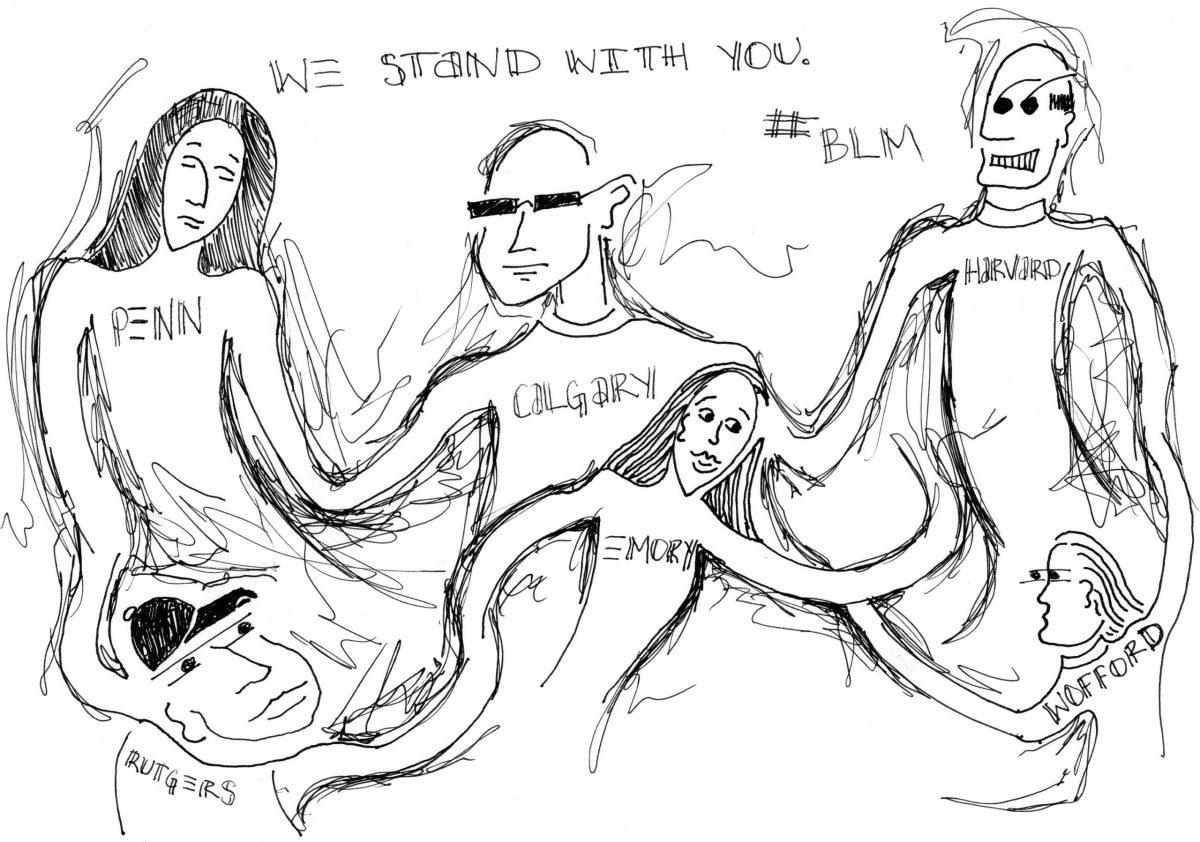Professors across North America draw attention to injustice
In the midst of a return to a semblance of normalcy around the country as students return to classrooms and campuses, the conversation surrounding racial and social justice rages on as the year 2020 builds up to what seems like a long-awaited main event: the election.
In the meantime, some professors around the country participated in Scholar Strike, a two-day strike organized by two professors—Professor Anthea Butler, ph.D, associate professor of religious and Africana studies and interim chair of the Department of Religious Studies at the University of Pennsylvania, and Professor Kevin Gannon, ph.D, professor of history and director of the Center for Excellence in Teaching and Learning at Grand View University.
Scheduled for September 8 and 9, the goal of the strike, as explained by Dr. Butler, is “to do two things- pause our normal academic duties to focus on issues of racism in America, policing, violence towards POC, and the history of racism in policing and the legal system.”
The movement is inspired by the advocacy carried out by professional athletes across several sports leagues, including the NBA, WNBA, and MLB who briefly went on strike to re-center the country’s focus on racial injustice.
These acts are not limited to the United States, either, as educators in Canada—specifically at the University of Calgary—had their own strike over the course of September 9 and 10.
Even at Wofford, psychology professor Dawn McQuiston, ph.D, took part in the strike and said that, like Dr. Butler, she believes that “fighting racism is fundamentally about education.”
McQuiston: “It provided the opportunity to briefly pause my typical instruction and work with students so that, together, we could learn more about the violence being perpetrated against communities of color, especially as it currently pertains to police violence.”
Dr. Butler encourages everyone in the world of academia to leverage their positions to make a statement, to educate the public, and to advocate for justice in the most effective way they can.
“Seventy-five percent of all credit hours in US colleges and universities are taught by underpaid adjunct faculty,” wrote Butler and Gannon, “who not only lack the protections and benefits of full-time faculty, but are employed on a class-by-class, term-by-term basis….We are indeed labor…and, as US history shows us, there are times when the most powerful way that workers can force an issue or work for change is to withhold what others see as their most important feature: their labor.”
Because of the changes to classroom setups nationwide due to the coronavirus, the movement came in different forms. On one hand, some educators chose to completely strike from their regular duties in order to participate in events that raise awareness and encourage action against racism and its impact on modern America. On the other hand, some professors, such as Wofford Professor Dr. Natalie Grinnell, opted to do teach-ins on those days where they changed the subject matter of their courses to take a deeper look at social justice.
“I support re-centering my courses, on those days, on issues of social justice in the wake of more injuries and death,” Grinnell said.
She also chose to replace one of her upper-level class sessions with a Zoom meeting concerning critical race theory.
Dr. McQuiston did a teach-in as well, aided by resources on anti-racism, police brutality and mass incarceration that were provided to her in the weeks leading up to the strike. To her, having difficult conversations that can leave all participants, regardless of their viewpoints, better informed in the end is perfect for environments like higher learning institutions.
“I have always thought that a conversation that feels uncomfortable is precisely the one to be had,” McQuiston said. “It is up to faculty to create a classroom environment that both facilitates dialogue on provocative topics and challenges pre-existing beliefs – this is a fundamental part of the college experience.”Despite the scholar strike now being behind us, professors all over the country have continued to move in the spirit of ending injustices faced by minority communities. Dr. Butler’s international movement has poured gasoline into a fire burning for change, and it has also spread the message that the world of academia not only recognizes the mistreatment happening every day, but in the words of Dr. McQuiston, that “we in the academy support and stand in solidarity with each of our communities who are fighting against police violence and racial justice.”






























